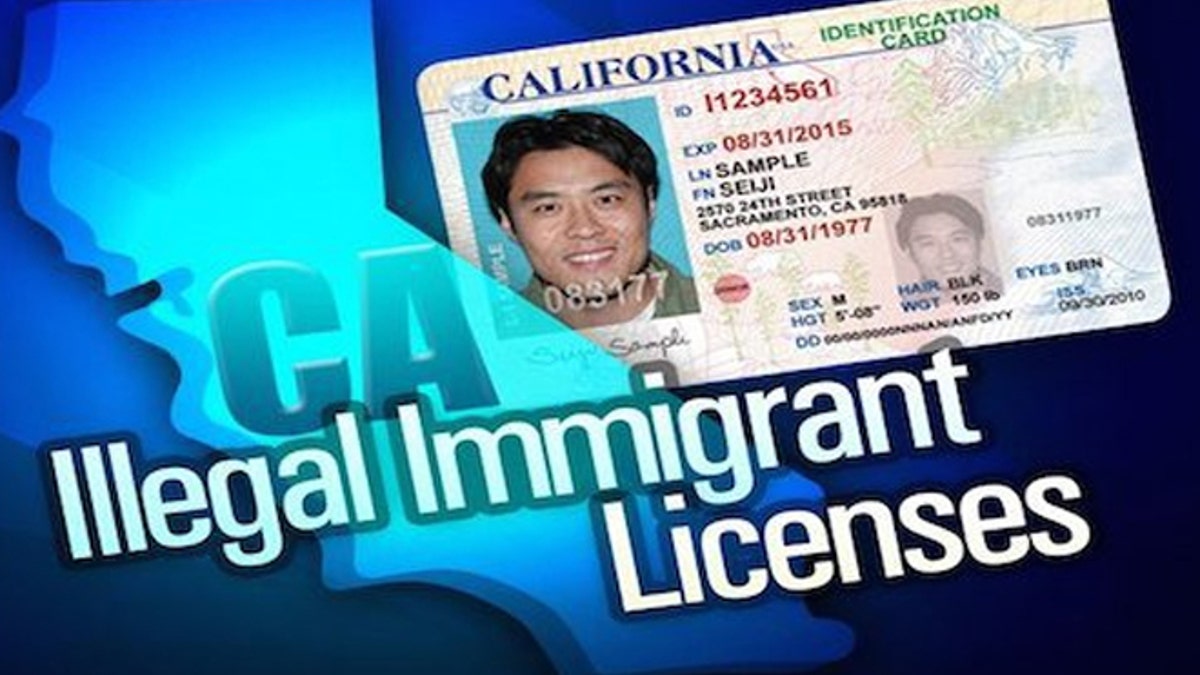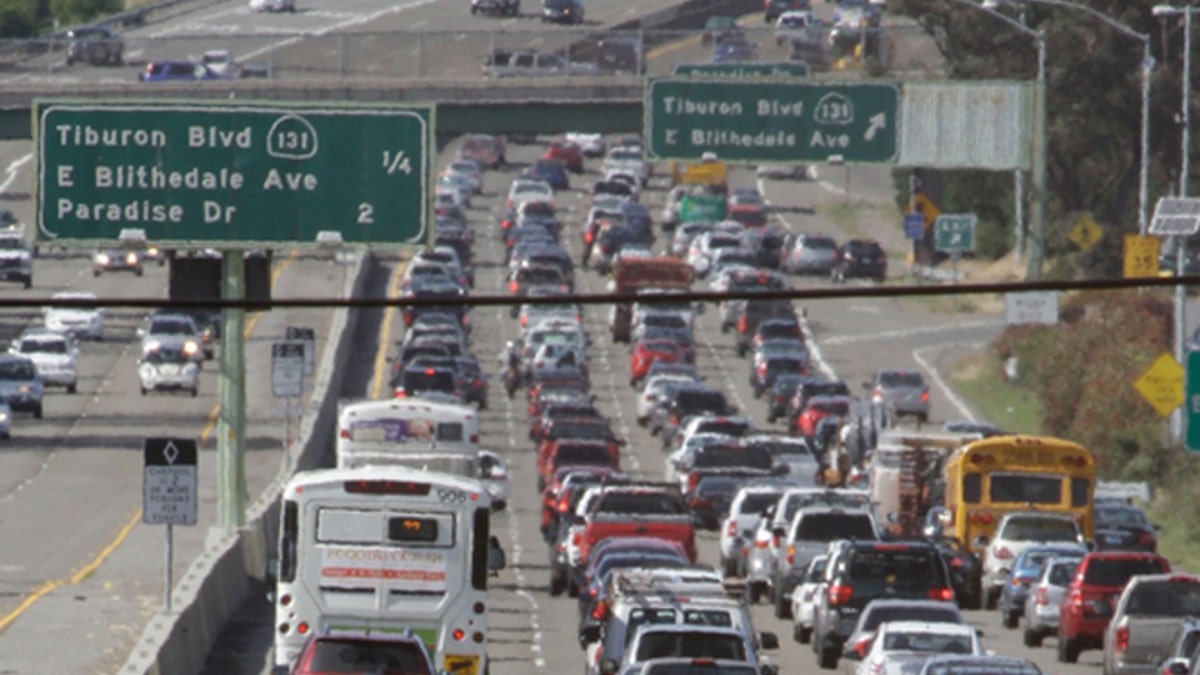
Southern California mom-of-two Jennifer Brawley had just been rear-ended by a truck driver near Rancho Cucamonga, and was preparing for the post-accident ritual of exchanging insurance information when the driver handed her his cellphone.
A voice on the other end explained that his non-English speaking friend had no coverage.
Police came to the scene and determined the driver had a valid license, and sent him on his way. Brawley, grateful to be unhurt, was nonetheless left with a feeling that something wasn’t quite right. In the push to grant illegal immigrants driver’s licenses, Californians had been assured that doing so would spur them to get safety training and insurance coverage. Nearly a year-and-a-half later, there’s no evidence it worked.
“It is hard to pinpoint whether the bill has had an impact or not,” said Jeffrey Spring, spokesman for the American Automobile Association’s California chapter. “We have no way of knowing.”

Brawley felt fortunate she was not hurt, but left with expensive repairs.
The law, and a three-year, $141 million program designed to implement it, did not provide for a way to measure if illegal immigrants are any more inclined to buy insurance.
“There are no statistics regarding how many new license holders under AB 60, purchased vehicle insurance,” said California Department of Motor Vehicles spokesman Artemio Armenta. “We cannot relate our vehicle insurance data to driver licenses because the vehicle registration information is only associated with individual vehicles and cannot be used to identify any trends related to AB 60. Drivers under AB 60 are not tracked or singled out any differently.”

More than 600,000 illegal immigrants got driver's licenses iin 2015. (Associated Press)
“The DMV cannot relate our vehicle insurance data to driver licenses because the vehicle registration information is only associated with individual vehicles and cannot be used to identify any trends to AB 60,” Armenta said.
The DMV estimates that at least 1.4 million drivers will apply for a license over the next three years. As of March, the state had issued approximately 696,000 driver’s licenses under the program. The program does not compel them to get auto insurance, and even if they get the coverage required to register a vehicle, they could stop paying premiums as many drivers do.
"I’m sure some drivers bought insurance before they took their test but in many cases they just don’t pay the next month and it’s canceled," said anti-illegal immigration activist Don Rosenberg, whose son Drew was killed in 2010 in San Francisco by an unlicensed, uninsured driver who had entered the country illegally but was granted protective status.
The law was part of a bundle of immigration measures designed to make California friendlier toward illegal immigrant residents. The state hired 1,000 temporary DMV workers, opened four new processing centers and extended hours in an effort to deal with the anticipated inundation onf the system – which was reportedly even higher than expected – as almost half a million applications came through in the first three months alone.
It was clear that illegal immigrants wanted driver’s licenses, but there is scant evidence supporters of the law were correct in saying it would spur them to get insurance.
If licensed illegal immigrants want to buy auto insurance, the state provides a low-cost option. The California Department of Insurance markets the state-sponsored, Low Cost Auto Insurance Program for low income earners through Spanish-language media. Plans provide minimal liability coverage with annual premiums as low as $241. The coverage is less than what is mandated for other drivers who purchase policies through private insurance companies, paying a statewide average of just below $2,000 per year.
Some 650,000 licenses were issued to illegal migrants in 2015 alone, and just 11,348 Californians – some illegal immigrants and some not - bought Low Cost Auto Insurance policies.
Rosenberg and other critics say the subsidized insurance pays victims less than regular policies, leaving them with insufficient protection in the case of accidents caused by illegal immigrants, further undermining a major selling point of the law.
“Prior to this program California had the worst property damage coverage in the country and was tied for the third lowest payouts for injury or death,” Rosenberg said. “To then offer a program that lowers the payouts even further and eliminates the safe driver criteria to enroll is unconscionable.”
Private insurance companies targeted advertising to an expected influx of illegal immigrant customers following passage of the law, but several contacted by FoxNews.com said there is no data to suggest such a market ever materialized.
Some insurance company officials noted that despite the law’s main selling point being that it would prompt illegal immigrants to get insurance, they were already allowed to by policies for cars they owned even without driver’s licenses. According to the CDI, an estimated 25 insurance companies sold automobile insurance to those who owned cars but did not have a driver's license.
“It is hard to quantify the effect the bill has had on the safety of California roads,” said Mark Sektnan, president of the Association of California Insurance Companies. “But the summation is that many already had insurance before they could legally get a license.”
Possible evidence that more illegal immigrants are getting insurance could be reflected in numbers that show citations for driving without coverage on the decline. According to the California Highway Patrol, just over 92,000 drivers were cited for lacking proof of valid insurance in 2015, down from 105,500 the year before and 112,081 in 2013.
But even those figures are inconclusive, as uninsured driver citations were on a downward trend for at least five years prior to passage of AB 60.
“The bottom line is that the public was sold a lie,” Rosenberg said. “Getting a license does not mean you will get insurance and what little history there is says that most don’t.”








































